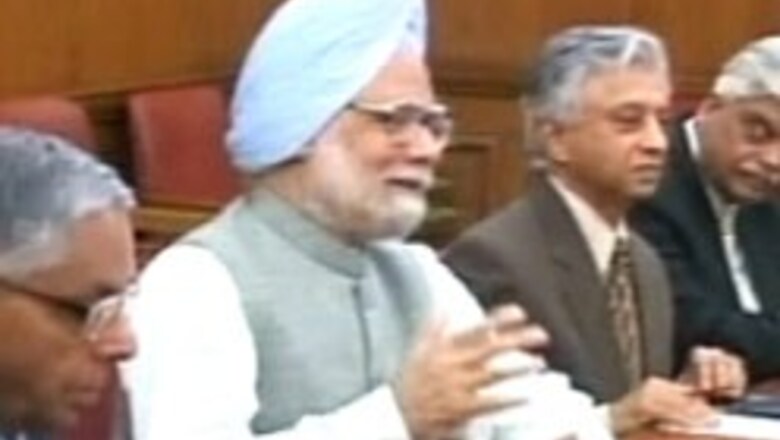
views
New Delhi: While the PM's address to the Hindustan Times Summit-2007 in New Delhi on Friday seems to have put the lid on the UPA-Left bickering over the nuclear deal, the Congress and the BJP offered their own interpretations of the speech.
While the BJP described it as a 'U-turn' in the Congress stand on the Indo-US nuclear deal, the Congress said it as "as much committed to good governance as to coalition dharma.''
The Left seemed happy with the PM's speech. Welcoming the statements of Dr Singh and UPA Chief Sonia Gandhi on the nuclear deal, the Left parties said the government was committed to considering the findings of the joint mechanism set up to allay their concerns on the issue.
But what did the PM exactly say? Here we reproduce the full text of Dr Manmohan Singh's speech as released by Press Information Bureau.
"I am delighted to be back once again at this important gathering. As I have said before, these forums provide us opportunities to exchange views, to debate and shape the thinking of our people. Such public discourse is the life blood of a democracy. I compliment Shobhanaji for the interest she has taken to ensure that these summits are high quality events. You have, once again, an impressive gathering of speakers and participants.
I hope the views and ideas expressed here are carried across the length and breadth of our country. These proceedings should be translated into all Indian languages so that our people get to know the thinking of the eminent personalities gathered here. I dare say, though, that one finds that on many issues, the people of our country are often ahead of their political and intellectual leaders! The people of India have shown time and again a remarkable capacity to keep in step with change and often, be the agents of the change they want to see. It is we - politicians, policy makers and opinion makers – who some times find ourselves lagging behind public opinion.
This would be more so in a society of increasingly young people. India is going through a demographic revolution. We are a nation of young people, with a new generation entering the electorate at every election. Each generation has it’s own dreams. Each generation “Imagines the India that can be”. In a society of such rapid demographic and social change, new ideas and experiences capture the imagination of each passing generation. The India that we imagine that can be today, may well be obsolete by tomorrow.
It is, therefore, of utmost importance that we remain in touch with this changing reality and understand the India `that is’, even as we seek to imagine the India that `can be’. For us, here in India, this is not just a reality check, but also a way of renewing the basis of our nationhood, and our Republic.
PAGE_BREAK
I say this because our Republic is itself the product of our collective imagination. It is often said that we are an ancient civilisation but a young nation. The “idea of India” draws inspiration both from our civilisational roots and from the social, political, intellectual and, above all, the emotional basis of our national movement. These define our collective imagination. A nation based on such diverse sources of human imagination - rather than on mere ethnicity, religion or language - has limitless possibilities. No static ideology can freeze or strait-jacket the creativity, the enterprise and the imagination of our people.
That is why I am filled with optimism when I think of the future of India. This optimism is not based merely on hope. It is based on experience and past performance. Sixty years ago, when we won our independence, few imagined that in our lifetime, India would be where it is today. I spent the first ten years of my life in a village that had no drinking water supply, no proper sanitation, no electricity, no school, no hospital. I walked a great distance every day to school and had to do study at home under an oil lamp. We have come a long way from those modest beginnings. There is no doubt that there are still places like that village of mine. However, they have hope that they too will be transformed in the foreseeable future.
We are today at the threshold of a new era of social and economic development. The recent acceleration of economic growth, coupled with the advances in social and human development give us renewed hope of banishing poverty, ignorance and disease sooner than later. Over the last three years, we have brought back into sharper focus the issues of critical importance for the development of the vast majority of our people.
We have moved public debate and discourse away from narrow, sectarian, divisive agendas to an agenda where policies and programmes that will usher in a new India are discussed, debated and given a final shape. When I read the media, it gives me a great sense of hope that our democracy has shown a remarkable ability to re-focus its energies on issues of vital import to our common people – be it rural development, be it education, be it health care, be it social security. It is this vibrancy that makes me believe that the India of tomorrow will be a great nation.
To move forward, however, in step with the expectations of our people, there is much more we have to do. There is a vast unfinished agenda of development and reform that awaits us. We cannot rest on our laurels or take our successes for granted. In the past five years, our economy has grown close to 9%. This is unprecedented. This can be sustained into the future. However, we cannot take this for granted.
We cannot assume that the country and the economy will move forward on their own, while we dissipate our energies in meaningless controversies. If all our time and energy is spent battling the ghosts of the past, how can we hope to do the day’s work efficiently? And I dare say, there is a lot of work to be done.
When the media thinks of reforms, their attention is often focused on the financial and industrial sectors. I do agree that in these sectors there is more we must do, though the fact is that a considerable distance has been covered in these areas. But there are other equally vital areas of our economy waiting to be reformed and taken forward. I draw your attention, in particular, to agriculture and rural development, infrastructure and power, education, health and public service delivery.
I am particularly concerned about rural development and education. These will remain our key focus areas for a long time. Our farming community, and all those who live in rural areas, must be equal partners and beneficiaries of the development process. We have to improve their standard of living, offer them social security and insurance against risk. We have to reduce the development gap between rural and urban areas, between the more and less developed regions of our country. These are going to be enduring goals.
Equally important is the empowerment of the Scheduled Castes, the Scheduled Tribes, Other Backward Classes, women and Minorities, through education. No modern country has less than 80% literacy. As I said in my Independence Day Address this year, India needs a new revolution in modern education. Every village must have a good school, a working hospital, drinking water supply, sanitation and electricity. Every child must have access to good and modern education and to health care. Every household must have the basic amenities of a modern society. Such are the imperatives of the India we all wish to imagine.
PAGE_BREAK
You will recall that at your Summit last year, where your theme was “India – The Next Superpower”, I had cautioned you not to ignore the many hurdles we have yet to cross to become a developed economy. We are still a poor nation. To be a Great Nation, we need to improve the quality of life of our people, generate more employment, improve productivity, educate all our children and eradicate mass poverty.
Today, I wish to once again emphasise that point. It is easy to imagine a future of great potential for our country. We must, however, first build the foundations that can help us realize that potential. That does not require us to dream. It requires us to act. And to act now. We must continue to exert pressure on our system to make our industry more globally competitive. We must improve the quality of our educational system. We must improve the public delivery system, especially in health care, sanitation, drinking water and public transport. India has a long road to travel to join the ranks of even the newly industrialized developing economies.
To realise the India of our dreams, we must show courage in taking actions that the people expect us to take in their long term and best interests. I am fully aware of the dictum that in politics, one must survive short term battles to attain long term objectives. However, we need to work with one eye on long term objectives while meeting day-to-day challenges.
I recall the kind of pressures we had to withstand in 1991 as we sought to reform and modernize our economy. India was in choppy waters with a serious economic crisis on hand. If we had dithered, if we had yielded to our critics, if we were not firm in our resolve, if we had been overwhelmed by self-doubt, we would have taken the country into a whirlpool of disaster. We were not afraid to think into the future and take actions that have served the country well. Many people worried that our policies would lead to the de-industrialisation of India. On the contrary, those reforms unveiled a new era of enterprise and creativity for India. Enveloped by crisis, besieged by political uncertainty, surrounded by anxiety, we imagined an India that can be!
Our dream has not yet been realized in full measure. But there is no doubt in my mind that we helped create an environment that has encouraged subsequent generations to dream more boldly, imagine more creatively, aspire more confidently. The India we imagined two decades ago, is now within our reach. The India we imagine today will also be in our grasp, if only we keep faith, dare to dream and stay the course.
We want India to regain its due place in the comity of nations, as an open economy and an open society. We want India to have normal relations with all countries, big and small. India will always seek good relations with all countries on terms of equality and mutual respect. We seek India’s membership of all global councils where the voice of a billion people must and should be heard.
In the past three years, our bilateral relations have become more broad-based and wide-ranging with a large number of countries. As our share of global trade and capital rises, as our economy becomes more globally integrated, we will become even more engaged with the global economy. India’s voice will be heard, India’s views will be sought. We must prepare to make use of the emerging opportunities and responsibilities.
Dealing with the world is a process of give and take. “The India that can be” will be one which has confidence in itself, confidence in its abilities, confidence in its capabilities, confidence in its possibilities. I have no doubt in my mind that the people of India have that confidence in themselves. A great nation, a proud people, an ancient civilization, a home of all the great religions of the world, cannot but be a self-confident nation. I have no doubt that the people of my country have this confidence to deal with the world as it exists. Sometimes, it is we, in positions of authority, who are the doubters.
In an age of competitive politics, politicians tend to become short-term maximisers. It is for this reason that democratic and plural societies need a social group capable of long-term thinking. Men and women of wisdom capable of strategic thinking, with the self-confidence to articulate them. People with a stake in the future, with no vested interest in the political battles of the day. People who don’t think just for a section of society, for a region or a religion, for a vested interest or for short-term gains. We need people who can think for the nation. Think into the future. Think about the future and its various possibilities.
To nurture the roots of our democracy and constantly reinforce its foundations we must invest in our future. Thinking about the future is the first step towards investing in it. I hope your forum will continue to offer space and time to those who wish to think about India’s future, with confidence, self-confidence! Thank you.”










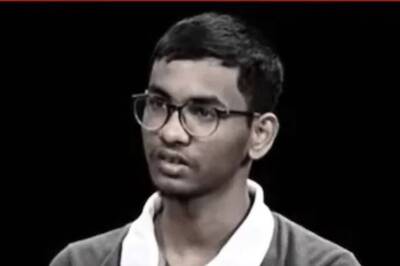

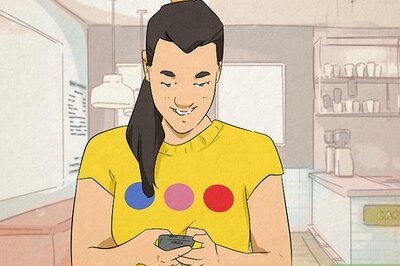
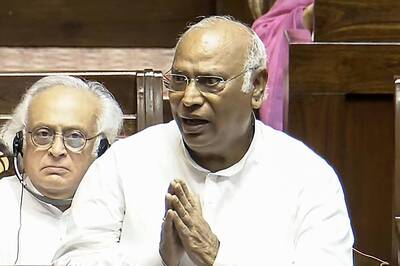
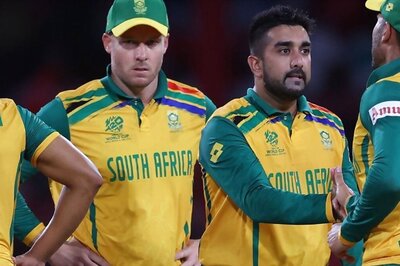
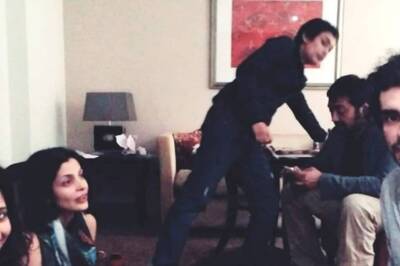

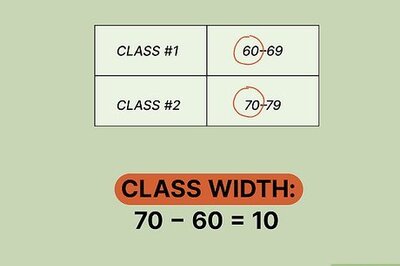
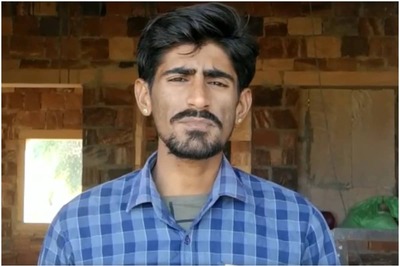
Comments
0 comment